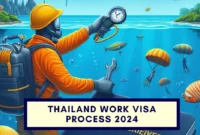Malta has implemented a seasonal worker permit program that allows employers to hire temporary foreign workers for up to nine months per year. The Temporary Worker Programme, which will continue into 2024, addresses labor shortages in Malta in sectors like hospitality, agriculture, and construction by facilitating the legal employment of non-EU nationals.
This article will provide an overview of Malta’s Temporary Worker Programme for 2024 who is eligible, how to apply, program requirements, worker rights and regulations for both employers looking to hire temporary foreign workers as well as non-EU nationals interested in working temporarily in Malta under this program.
- Eligibility for Malta’s Seasonal Worker Permit
- How Employers Apply for Malta Seasonal Worker Permits
- Duration and Program Regulations
- Rights and Responsibilities of Temporary Workers
- FAQs
- What is Malta’s Temporary Workers Programme?
- Who can take part in the programme in 2024?
- What are the eligibility criteria for employers?
- What are the eligibility requirements for seasonal workers?
- How long can seasonal workers remain in 2024?
- What jobs do seasonal permits cover?
- Do employees pay a fee to participate?
- What rights and protections do seasonal workers have?
- Can seasonal workers apply for long-term permits?
Eligibility for Malta’s Seasonal Worker Permit
Both employers and foreign nationals must meet certain eligibility criteria to qualify for Malta’s Temporary Worker Programme in 2024. On the employer side, to be eligible to hire seasonal workers the employer must be registered and licensed in Malta. The work on offer must also be temporary in nature lasting between three to nine months and related to tourism, agriculture, or specified construction occupations.
Seasonal workers wanting to obtain permits under the program in 2024 must be non-EU nationals aged 18 or over originating from designated countries. These workers must demonstrate some connections to their home country to support their return after their temporary work assignment ends. Workers must also meet medical check, police check, and occupational health and safety regulatory requirements before being hired.
How Employers Apply for Malta Seasonal Worker Permits
Maltese employers wanting to hire temporary seasonal staff through the programme in 2024 must first register on the Jobsplus online portal. After registering, employers can then input details on the number of foreign workers requested and their intended occupations. Supporting documentation must also be uploaded showing the availability of suitable accommodation for workers.
Visa processing procedures include vetting applications, assessing if requests align with programme requirements, conducting risk assessments, and deciding on visa issuance. If approved, employers will be issued approval letters for each worker along with guidelines on next steps regarding worker visas and travel. Employers must furnish bank guarantees covering worker repatriation costs and purchase comprehensive health insurance for incoming seasonal staff.
Duration and Program Regulations
Malta seasonal work permits issued for 2024 allow employers to hire non-EU seasonal workers for a period ranging from three months to a maximum of nine consecutive months. Permit holders may only work for the registered employer specified on their approval documents. These temporary permits do not have provisions for extensions, renewals, or changing employers.
Permit holders must reside in Malta for the duration of their contract. Workers can re-enter Malta within the nine month validity window if they travel abroad. Wages, working hours and leave entitlement for seasonal workers will be subject to the conditions specified in local employment laws and sectoral regulations pertaining to their assigned occupations.
Rights and Responsibilities of Temporary Workers
While employed in Malta through the seasonal worker program in 2024, temporary permit holders will benefit from many of the same rights and protections afforded local workers. Seasonal staff may join worker’s unions in their sector and will earn at least the minimum wage applicable to their occupation. Permit holders can access the complaints and dispute resolution resources of JobsPlus and other fair employment agencies if issues arise regarding work agreements, pay or treatment.
These workers must obey all of Malta’s laws and regulations during their stay as legal temporary residents. Breaching the conditions of their permits or overstaying the validity period could result in repatriation, inability to collect unpaid wages, and possible bans on future entry. To maintain legal status, seasonal workers would need to exit Malta when their contracts end or visas expire.
FAQs
What is Malta’s Temporary Workers Programme?
Malta’s Temporary Worker Programme enables employers to legally hire foreign seasonal workers from non-EU countries to fill temporary labor shortages. The program issues permits for stays ranging from 3 to 9 months per calendar year. It is open to employers and employees in certain industries, such as tourism, agriculture, and construction.
Who can take part in the programme in 2024?
In 2024, the programme will remain open to eligible Maltese employers and seasonal workers aged 18 and up from designated non-EU countries such as the Philippines, India, Serbia, and others.
What are the eligibility criteria for employers?
To hire seasonal workers in 2024, employers must be Malta-licensed, demonstrate that they attempted to hire EU nationals first, provide adequate worker housing, pay the minimum wage, cover worker healthcare, and provide return travel costs.
What are the eligibility requirements for seasonal workers?
Eligible non-EU seasonal workers cannot have overstayed previous visas, must pass background checks, be healthy enough to work, and have ties to their home country that allow them to return after temporary work stints.
How long can seasonal workers remain in 2024?
In 2024, the maximum length of stay will remain nine consecutive months. The minimum assignment duration is three months. Extensions are not permitted. Workers must leave Malta at the end of their contract period.
What jobs do seasonal permits cover?
The 2024 seasonal permits prioritize lower-skilled jobs in tourism, agriculture, certain construction occupations, and other industries that require additional temporary workers.
Do employees pay a fee to participate?
No, Maltese law prohibits employees from paying for recruitment or visa processing fees. Employers must bear all hiring and compliance costs, including insurance, airfare, and agency fees.
What rights and protections do seasonal workers have?
Seasonal permit holders are covered by Maltese employment laws. They can join unions, earn at least the minimum wage, and have access to dispute resolution services for work agreements, pay, and treatment issues.
Can seasonal workers apply for long-term permits?
No, the 2024 seasonal permits will remain strictly temporary. Holders cannot apply for permanent residency or long-term visas. The programme only allows for circular migration for specific time periods.
Conclusion
Malta’s Temporary Worker Programme continuing in 2024 facilitates seasonal staffing arrangements of mutual benefit for employers and migrant workers. The scheme enables local businesses to legally recruit much-needed temporary workers from beyond the EU when facing labor shortages. Non-EU nationals can also gain short-term employment and experience working in Malta through legal channels under this seasonal permit program.
Employers and potential workers that meet eligibility criteria and follow proper application procedures should find the programme provides them expanded hiring and employment options.
All details about the residency programme, application process, required documents, application cost, and everything else are available on the official website.




